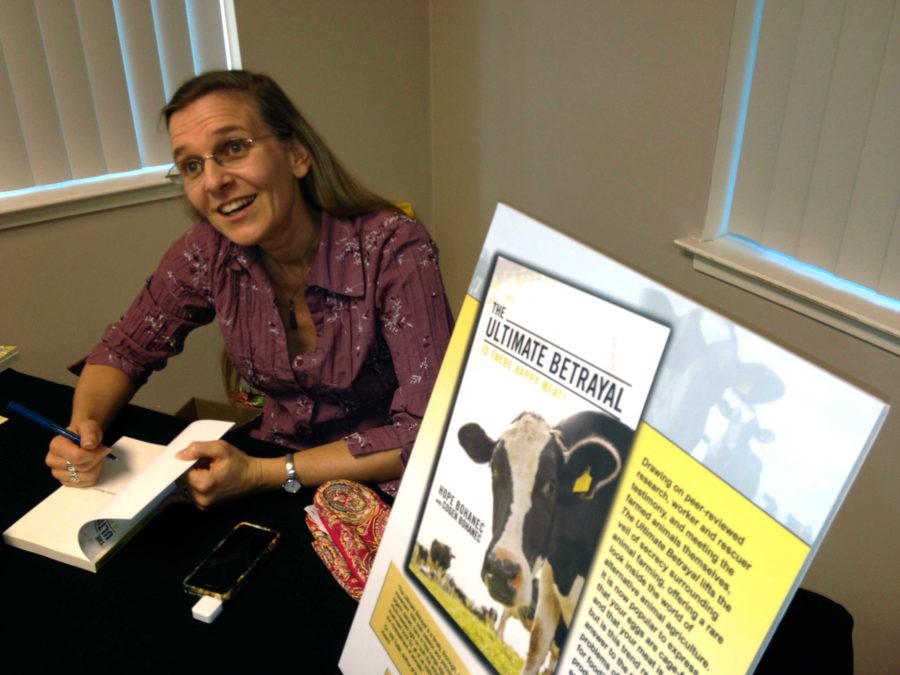Hope Bohanec has wanted to write for years. She walked into her first journalism class at Santa Rosa Junior College knowing she would someday write a book about the environmental impacts of raising animals for food. She’s got a story to tell. A mission. She did it, and a lot of humans and non-humans alike are cheering.
Bohanec, a Penngrove resident, just published “The Ultimate Betrayal, Is There Really Happy Meat?”through I-Universe publishing house in June 2013. The book explores in detail why alternative animal products are neither environmentally sound nor ethical.
“If you assume that as long as animals are treated humanely, it is alright to kill them, ‘The Ultimate Betrayal’ will lead you to question this assumption, and to interrogate more deeply what ‘humane’ really means,” says Karen Davis, president of the United Poultry Concerns.
A one-time SRJC journalism student and Oak Leaf Opinion Editor, Bohanec has been active in animal and environmental protection for more than 20 years. She recently served as the campaigns director at In Defense of Animals in San Rafael. She also co-founded the Sonoma County based non-profit, Compassionate Living Outreach.
Starting out, Bohanec wanted to write about the ecological effects factory farming has on the planet. She became a vegan 23 years ago strictly for environmental reasons. Like so many other vegans who want to change their diet for environmental reasons, the more she read about what happens to animals on farms, the more convinced she was her eating habits were the right choice. But as societal conversations began changing about three years ago to alternative methods of raising the animals, she began doing research and found that these new approaches to animal “production” had no less of a carbon footprint on earth, nor were they more humane.
“They are definitely a step in the right direction away from factory farms, but is there really such a thing as humane slaughter, and is buying from these industries really what people think it is?” Bohanec inquires in her book.
Cage-free, free range, humane, organic, cruelty free, compassionate, animal friendly, pasture-raised: Bohanec believes these labels create a misleading impression in the minds of the public, who would be both shocked and disgusted were they to actually see everything that happens to these animals in order to create these products. Bohanec points out that it’s all in the marketing of these clever animal-using industries, asking if their feel-good labels of “humane” and “sustainable” really represent the reality.
“Animal agriculture is a business with reasonable care standards, agricultural exemptions and practices the farm deems necessary and commonplace,” Bohanec said at her book launch party. Some of these farms have managed to get their animals out of the cages and she pointed out just how important that is.
Ultimately, though, Bohanec believes this does not prove to be enough, writing: “It is not our methods of animal agricultural practices that need to change; it is our unwillingness to let go of animal products and animal farming.”


